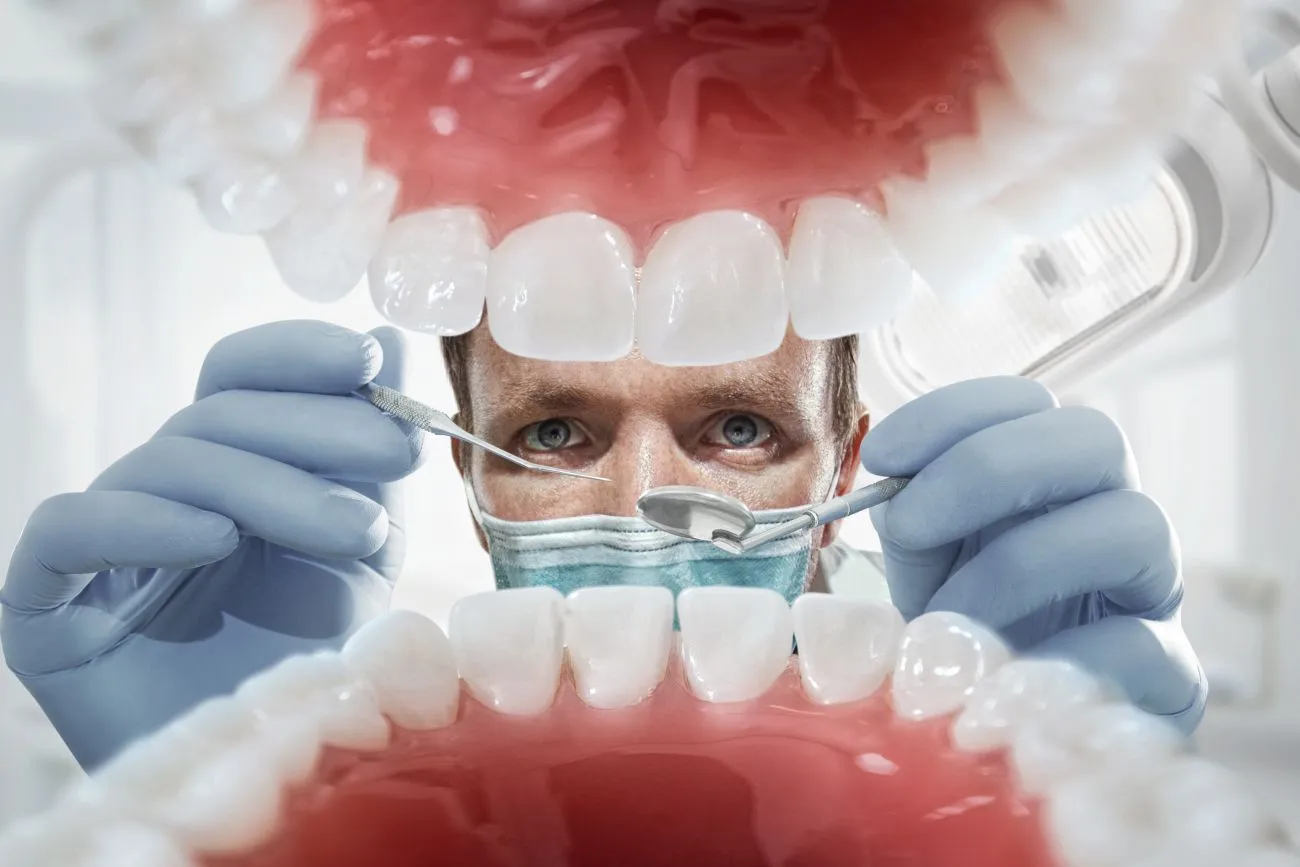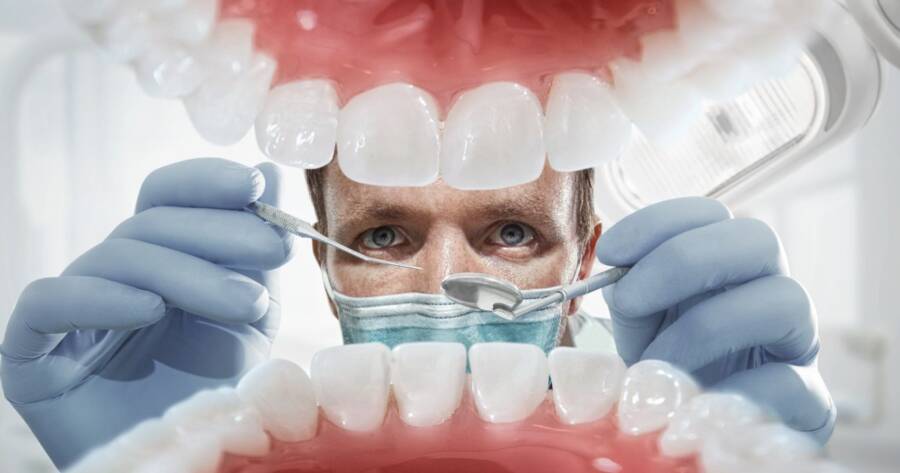Dentists do more than just diagnose and treat problems with the teeth and tissues in one’s mouth. Along with maintaining patients’ oral health, providing advice on dental treatments and care, writing prescriptions, and performing corrective surgeries, dentists must also manage their offices.
Like other business owners, dentists must be familiar with the administrative side of running a business. These duties and responsibilities include hiring and managing staff, purchasing office and specialized equipment, advertising services to potential patients, maintaining clients’ dental records, and overseeing office budgets. Dentists must also deal with external factors, such as competition for new patients and paying for office space. The business side of running a dental practice costs and determining how to pay for operating expenses usually starts with focusing on a high level of production.
According to Dentaleconomics.com, the annual overhead cost of running a general practitioner dental business averages $350,000. This total does not include the dentist’s salary, which according to the Bureau of Labor Statistics averages $173,000 per year.
A CBS News MoneyWatch report on why going to the dentist costs so much reveals that 60 to 80 percent of the fees that dental patients pay are exhausted by overhead costs. To stay in business, the average dentist’s office must net at least $300 per hour, after expenses, to make a profit. Therefore, if a dentist expects to keep the office running efficiently and make a decent salary, dental fees must reflect these expenses. This means that even a simple checkup or basic dental procedure can cost hundreds of dollars.
So, if you feel your dental fees are too high and that you are being ripped off by your dentist, you may be right.
Signs Your Dentist Might Be Ripping You Off
While the dental industry is regulated, experts from the American Dental Association (ADA) suggest that dentistry is not as closely monitored as other medical industries. This leaves room for compliance issues to occur. Dental insurance fraud and medical billing abuse are not that easy for patients to spot. However, there are other red flags that your dentist may be ripping you off.
Deals at the Door
Dental practices that offer deals at the door, such as a free cleaning or a free dental exam, are often ploys to get patients in the door. Once the dentist completes the cursory exam or quick cleaning, they upsell on expensive treatments starts. Patients should get the details about the suggested treatments and do their research before agreeing to even the smallest oral procedure.
Prescribing an Abnormal Amount of Dental Work
If your teeth have not been in pain and you have not mentioned any oral hygiene concerns, be wary of the dentist who recommends an abnormal amount of dental work. Patients should price check and trust their instincts.
To avoid paying for thousands of dollars of unnecessary dental work, patients should always seek a second professional opinion.
Abusing Dental Insurance
To reduce your chances of becoming a victim of dental insurance fraud, you should read and understand the fine print of your dental insurance plan. You can also call your insurance company’s billing department and request an itemized dental bill.
Some of the common misrepresentations that you should keep an eye out for are duplicate billing of services, altering dates of service, and unbundling of service procedures.
Waiving Copays
Dentists may waive patients’ deductibles as a professional courtesy. However, dental providers who waive copays may seem as if they are accommodating patients, but they are actually overbilling the insurance company.
Different Dentists Charge Different Prices
Patients watching their budgets and dental insurance premiums are often frustrated by the different treatment estimates they receive from dentists for the same procedure. According to dentists interviewed by The Bulletin, charges for the same procedure vary because each dentist’s diagnosis regarding other related dental work may not be the same.
Furthermore, dental fees are unregulated, so a dentist’s fees may include operating costs, time fees, lab charges, or even specialist fees. For example, a periodontist will charge more than a general dentist would bill to treat your teeth for gum disease. Oralhealthgroup.com reports that most dentists follow suggested fee guides. The guides do not provide one set price, but a range in which each procedure should cost. The dentist has the option of charging above, below, or right at the suggested price.
When it comes to billing for oral care services, dentists can easily take advantage of patients’ trust. Since most patients are unfamiliar with the average costs of dental procedures or what percent of the bill their dental insurance policies cover, they should go online and conduct a search. There are numerous websites that allow you to compare prices. Dentaloptimizer.com is a popular website that offers a dental cost calculator to helps you calculate the average costs of dental procedures in your area. Patients who take the time to compare and contrast the costs of dental procedures will save money in the long run.
How to Find a Good Dentist
It is hard to gauge the character and skill of a dentist just by looking at ads you see online and flyers you receive in the mail. When looking for a dentist, you should search for a provider who does more than just clean your teeth. By conducting a thorough search for a reputable dental professional who is in good standing in the medical community, you will find a dentist who has a genuine interest in your well-being and who will not rip you off.
Contact Your Local/State Dentist Society
Your local or state dental society is a great resource tool to find out information about dentists in your area. These professional organizations provide specific information about its members, as well as ensure that all dentists who join are properly credentialed and ethical.
The nation’s largest dental association, the ADA, also provides information on its 161,000 dentist members. The ADA website contains a search tool called Find-a-Dentist that allows you to search through all the ADA member dentists in your area.
Asking Trusted Individuals
Talking to trusted individuals like friends, family, and co-workers about who they use as dental providers is another search option. Word of mouth referrals are an effective yet subtle way to ask questions about a dentist’s business practices. A Nielsen Global Trust in Advertising Survey revealed that 92 percent of people follow through on recommendations from friends and family members.
You can also ask your family doctor for a referral. It is safe to say that your personal physician has your full body wellness in mind and will recommend a qualified dental professional
Do Some Investigating Yourself
Visit or call dentists you have researched online and request a free consultation. You should bring a list of questions to ask, as well as your dental records. Visiting the office in advance will help you determine if the office is clean and the doctor and staff are welcoming and competent.
 Rocksweeper / Shutterstock
Rocksweeper / Shutterstock


